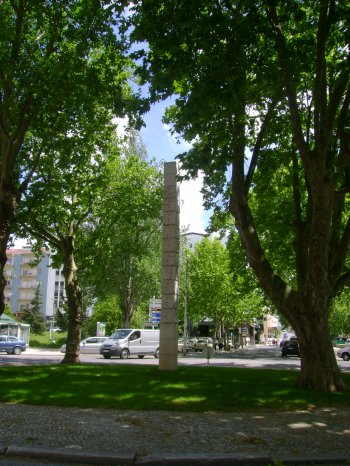Explore the best places
Monuments in Alcobaça
Estação Arqueológica de Parreitas
- heritage
Bárrio
2460, Cabeça do Louco
Station situated on the hills of Bárrio and along ancient Flint pond. Is testimony of a human settlement that stretches between the centuries I and IV.
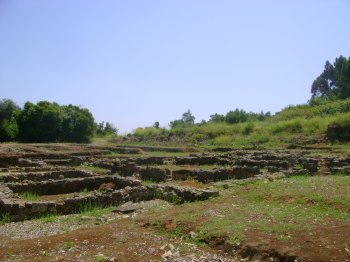
Ermida de Santa Rita / Ermida do Bom Jesus do Calvário
- heritage
Rua de Santa Rita
2460-396, Cós
17th century chapel of 17th century architecture. Has ship only with coverage in barrel vault.
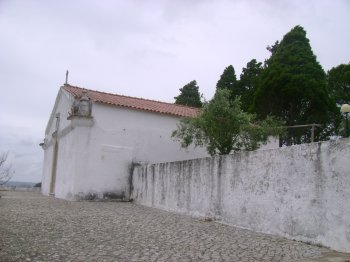
Mosteiro de Santa Maria de Coz
- heritage
Rua de Santa Rita
2460-396, Cós
This building was founded by testamentary arrangement of D. Sancho I it would come to adapt to a Convent house for the Bernardas during the 16th century. It possesses one only nave covered with a wooden ceiling with coffer painted with emblematic. –the walls are covered with pattern and figurative glazed tiles, altarpieces in golden mannerism carving framing paintings. The Manueline door giving access to the choir stands out, as well as the ceiling coffer paintings, the glazed tiles from the 18th century that cover the walls.
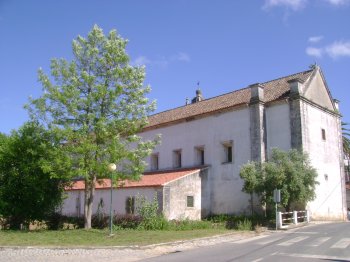
Mosteiro de Alcobaça
- heritage
Praça 25 de Abril
2460-018, Alcobaça
This Monument was constructed by the Cistercian Rule monks between 1178 and 1254 following the model from the Mother House from Cistercian Rule in Claraval, France. The Monastery is composed by three bodies: the church, the North and South wings where it was respectively located the Kings and Court chambers when visiting and the Abbot and Monks residences. From the original façade there are some preserved elements like the crenels on the side walls, the Gothic doorway and the lateral windows. The baroque towers were added in the 18th century. The church is the biggest one in Portugal with three …
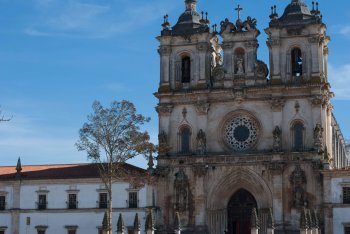
Castelo de Alcobaça
- heritage
Rua do Castelo, 35
2460-036, Alcobaça
Installed on a rise about 70 meters west of the monastery, Alcobaça Castle was sent to build by d. Afonso Henriques in 1147, on the presumed ruins of a fortification from the 6th century, as part of an important defensive line of the Lisbon region. Repeatedly devastated at the time of the Reconquista, d. Sancho ordered its reconstruction to house the monks alcobacenses and the population in the event of an attack. After suffering several earthquakes (1329, 1422 and 1563), turned out to serve as a prison in Filipes. Presenting itself in a State of ruin in the 18TH century, …
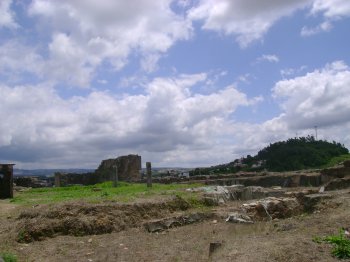
Pelourinho de Turquel
- heritage
Largo do Pelourinho
2460, Turquel
Pillory with a twisted shaft ornate with fitomorphic elements. The finishing on the capital shows a figure with an ecclesiastic suit.
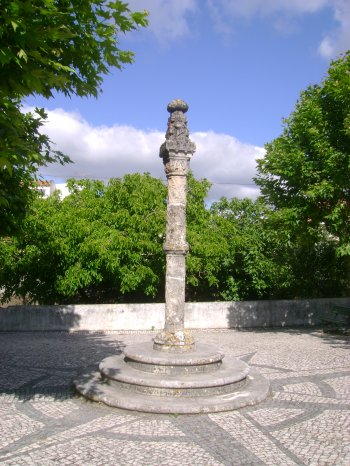
Pelourinho de Alfeizerão
- heritage
Largo João Baptista
2460, Alfeizerão
Manueline style pillory settled in three circular steps. It has a spiralled shaft with ring and topped by pyramidal decorated body.
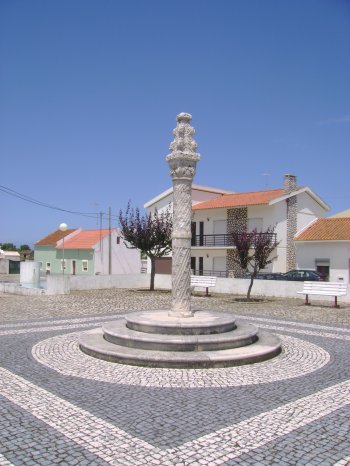
Pelourinho de Alpedriz
- heritage
Rua 5 de Outubro
2460, Alpedriz
This pillory is composed by a column with abutment. It has a base in a cone torso.
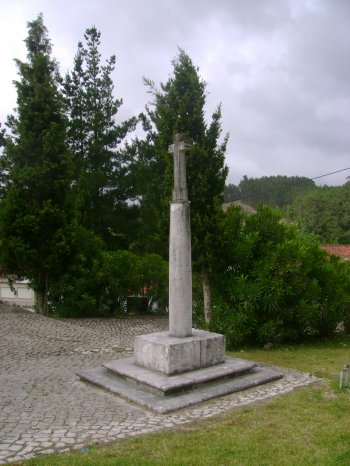
Pelourinho de Cela
- heritage
Rua Joaquim da Silva Almeida
2460, Cela
It is a pillory with a flat column supported by circular stairs. It has conic capital with the Coat of Arms from Alcobaça Abbots and the armillary sphere.
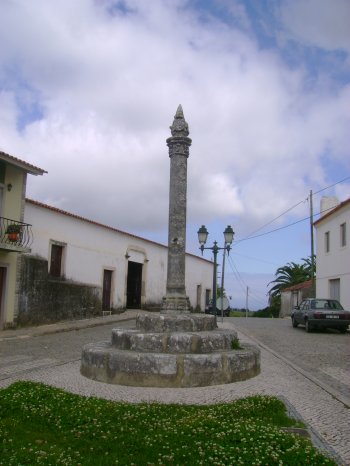
Escultura de Homenagem ao 25 de Abril
- heritage
Praça João de Deus Ramos
2460, Alcobaça
Cylindrical stone sculpture located on John of God Ramos in the Centre of Alcobaça.
